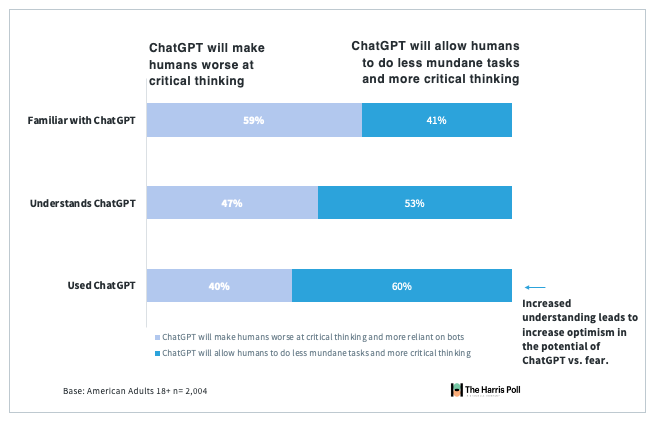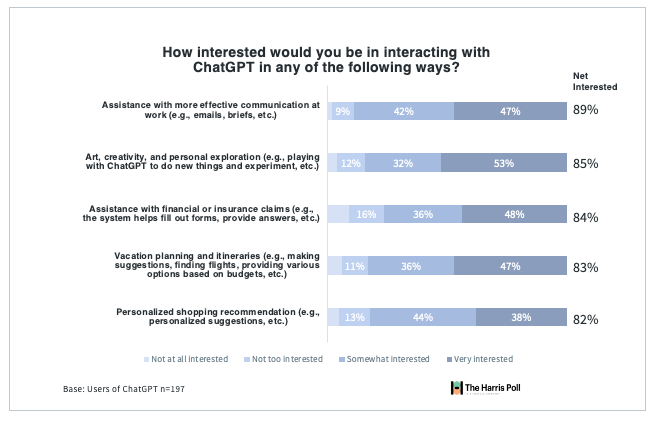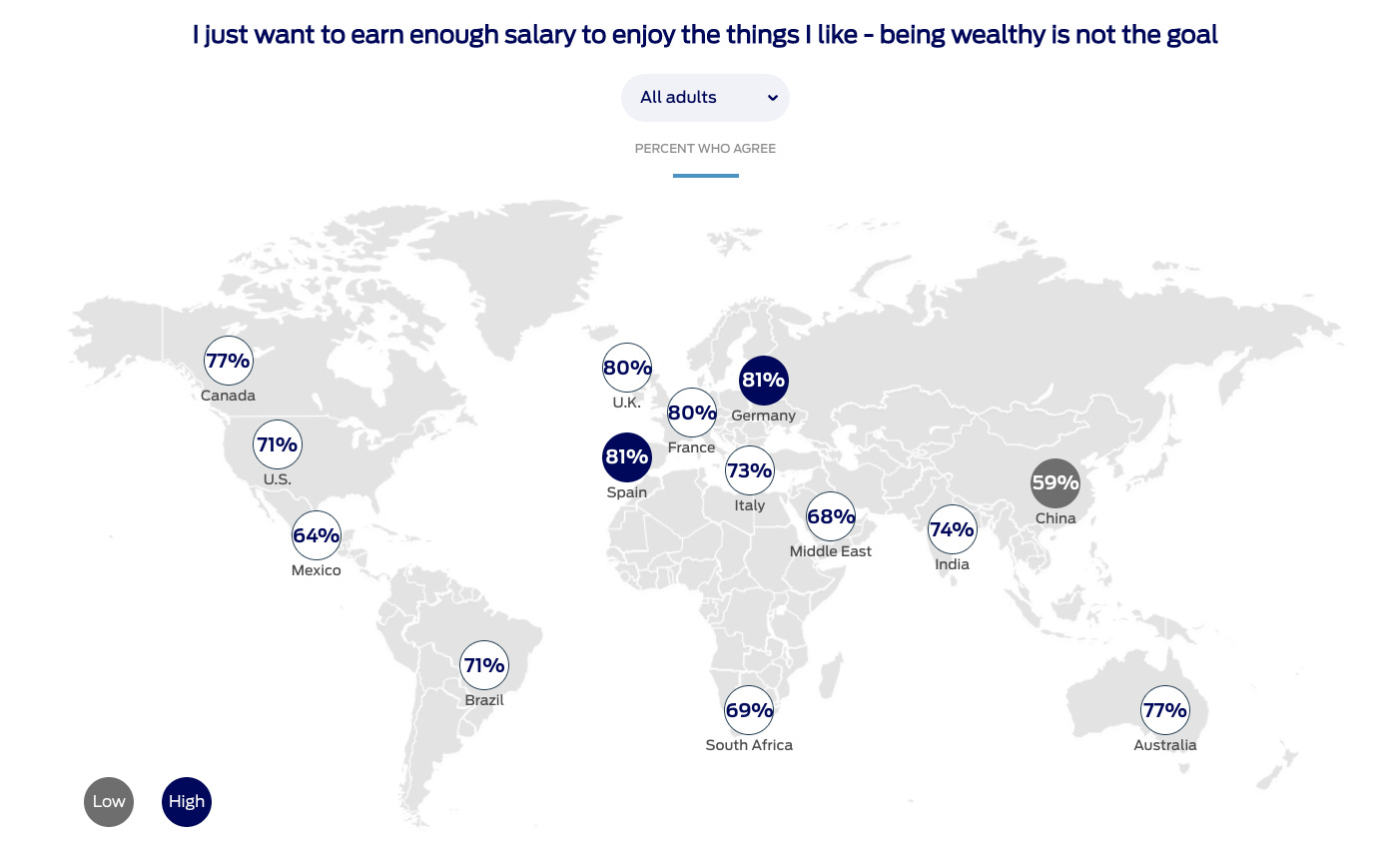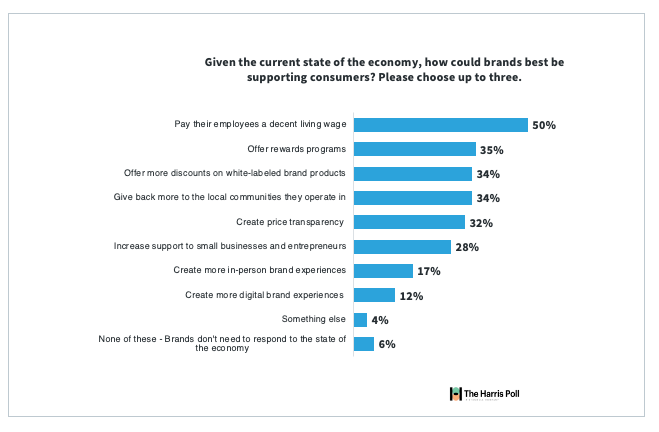Everyone Gets An Assistant!
What happens with generative AI collides with a rising labor movement?
The Next Big Think!
The NBT is an invitation to imagine the future. A newsletter and community at the intersection of culture + consumers + business dedicated to curiosity. Our goal is to surface new signals, desires, and needs that have the potential to shift the business world in the next 6-36 months.
Every week we will keep it simple and send you 1 number, 2 insights, and 3 links that will keep you ahead of the shifts happening in society.
1 Number
#Micro-offsetting
61% of global consumers say they would pay a small carbon tax on a snack to offset the environmental impact of making it.
Why pay attention? We see an increase of micro-offsetting tactics that consumers are willing pay for, despite economic headwinds.
2 Insights
1. More Assistants, Than People
What: ChatGPT has grasped the attention and imagination of people around the world. Going from zero to one million users ChatGPT in five days has achieved tech history. Dominating conversations at Davos and in reversals in the classrooms, ChatGPT has already created waves in society.
What we find most interesting is the applicability of generative AI to build an army of scalable personal assistants. Harry Shum, chairman of Xiaoice and former executive vice-president of Microsoft, said “as Microsoft predicted in 1975 that everyone would have a personal computer in the future, the company believes that everyone will have a personal artificial intelligence assistant in the future.”
A quick definition of generative AI: "Generative AI refers to a category of artificial intelligence (AI) algorithms that generate new outputs based on the data they have been trained on. Unlike traditional AI systems that are designed to recognize patterns and make predictions, generative AI creates new content in the form of images, text, audio, and more." (and a solid 101)
What the data tells us:
From our recent data in January, 2023 we know that 32% of Americans are familiar with ChatGPT. Over 6 in 10 Americans who are familiar with ChatGPT have used it, with Millennials (81%), Gen Z (63%), and Hybrid workers (73%) leading the pack.
Like many dramatic shifts in technology, we see optimism coming from those who’ve started using the platform. The more you know the less you fear, and the more potential you see in this type of generative AI.
So what assistance do people want from generative AI platforms? For those who’ve used ChatGPT they imagine the platform can help them navigate work communications, amplify their creativity, plan their vacations, assist with the finances, and even help alleviate pain around shopping. See below.
What to think about: When you pair generative AI platforms with the advances in virtual humans and humanlike voices, you can imagine a world not guided by a generic Siri or Alexa, but an intimate ‘you-name-it’ personal assistant. An assistant that doesn’t live on a company’s website, but lives universally across platforms that can help navigate the ‘time-drains’ in our lives (e.g., travel planning, insurance claims, corporate retreats etc).
We recognize we haven’t addressed the digital ethics occurring around generative AI. We are seriously monitoring data inputs, intellectual property rights, inequities, design bias, and more. We are monitoring this and will continue to report on it. So far, we know 80% of Americans say we need clear ethical and moral agreements on when and how to use tools like ChatGPT (increasing 88% of users). We believe corporations will likely play a large role in defining the future of moral ethics in the arena of generative AI.
2. The Right To Leisure Movement
What: You could say quiet quitting is a new form of employee disengagement, which was rising even before the pandemic. However, the difference is, now the disengagement has shifted into an overall labor movement happening around 'the right to leisure'.
What is the 'right to leisure'? It's a global movement to disconnect, set boundaries, and prioritize time outside working environments. It recognizes that as much as an individual wants to achieve ‘work-life’ balance, it's a fool’s errand without systematic change. For example, now France, Italy, Spain, and Ireland all have national policies that protect workers’ right to disconnect and more are joining in. While America doesn’t have any of these policies, we do see movements around 4-day work weeks, law and consulting firms hiring more, and company wide disconnection weeks off.
Why is this happening? The social contract between employers and employees is tattered. Previously, Americans believed hard work would result in financial stability and upward mobility, but this isn’t a guarantee today. Pre-pandemic the WHO called burnout an “occupational phenomenon,” and today’s youngest workers not only witnessed their parents being laid off during the ‘08 recession, they were the first to be terminated during the pandemic.
What the data tells us: Consumers globally are reimagining work as part of our days, not our entire life. In our 2023 outlook with Ford, we found ambition is being rewired, 71% of Americans say “I just want to earn enough salary to enjoy the things I like-being wealthy is not the goal”. And 70% of Gen Z say “I don't need to work a traditional 9-to-5 job to be successful (65% of Millennials)”.
What to think about: It’s becoming more clear that the rising power struggle between employees and employers is becoming a ‘game of chicken’ - waiting to see who relinquishes the ideal working scenario first. However, this isn’t a winner takes all game, both parties need to come to the table to reimagine the future of work. Employers waiting to win the power struggle due to economic headwinds, may not be fully considering the impact of how consumers pro-labor values. For example in Nov 2022 when we asked consumers how companies could help navigate a downturn (beyond just cutting prices) they ranked “pay employees a fair wage” as their top choice, 15 pts over all other options including personal rewards, discounts, and community giving. Consumers deeply care about how workers are being treated and reputation spreads fast.
3 Links
Instagram’s co-founders are back with Artifact, a kind of TikTok for text (The Verge)
Marie Kondo admits she’s ‘kind of given up’ on tidying up after having 3 kids (MarketWatch)
Bonus: Check out our recent work with Mondelez on the Future of Snacking, Mastercard’s Virtual is Reality (understand the motivations behind the Metaverse), and KinderCare’s annual Parent Confidence Study.
Curiosity is contagious, if this newsletter makes you think or smile, please share to spread more curiosity in the world!
Penned by Libby Rodney and Abbey Lunney, founders of the Thought Leadership Group at the Harris Poll. To learn more about the Thought Leadership Practice just reach out directly to one of us or find out more here.










